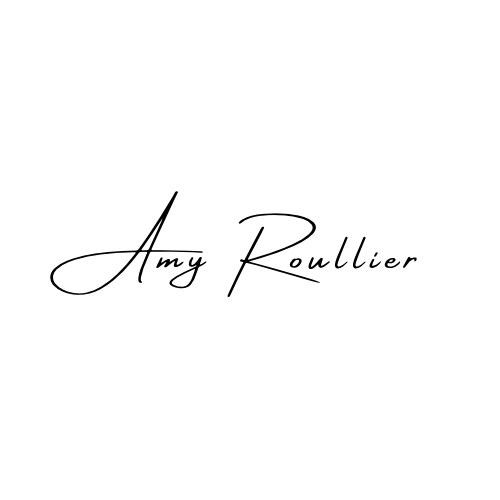Last week I was defeated by a rogue flu type thing. I didn’t look like shit, but I felt like a truck load of shit had been thrown at my poor broken body. I phoned my Mum the night before on the way home from work, and said I was feeling pretty rubbish. “Take a day off, get some rest,” she said. Easy to say, I thought. There was no time to schedule in a sick day, I hadn’t planned for it.
Monday I’d felt pretty bad, but back to back meetings and some projects that needed finishing meant that day had to be done, no arguments. Tuesday was a day of meetings at Head Office, too tricky to reorganize, too important to reschedule, so the long return road trip had to be made. Tuesday night, I was fucked (should have seen that coming). Yet I spent the drive home agonizing. Wondering whether I should or could take a sick day and feeling ever so guilty.
After much deliberation, I took a day off work sick on the Wednesday.
Why do we agonize over something so simple as taking a day off when we’re not feeling well?
80% of UK employees go to work whilst sick. Bryan Lufkin wrote in a BBC article called, ‘How remote work could nix the sick day‘, that, ‘It’s a problem that could become more common as hybrid and remote work spreads. Right now, data indicates many sick workers are logging in from home, and that ‘proper’ sick days are becoming increasingly rare. This shift raises a new dilemma for workers. Exactly how ill do you have to be to take a ‘proper’ sick day from home?’
Rather than get some rest and letting our bodies recover properly, we insist on dragging ourselves to work come hell or high water. Take my situation as prime example, I spent that evening in turmoil about whether or not to do the thing I know I needed. It’s engrained in me, it sometimes seems, that it’s bad to take a day off. Yeah, sure I’m unwell, and might barely take a sick day ever. I’m a hard worker, I’m not faking being unwell. Yet still, should I take one? More importantly, could I?
Another manic day would be lost, all those meetings would need to be rediarised swamping the days that followed. Things would be delayed. Stuff wouldn’t get done. People would have to wait. Could I actually take a day off or was it better to soldier on? It struck me that these conversations with myself were a bit silly. I was sick. I needed a day off to not feel sick anymore. Just take the effing day and STOP DELIBERATING IT! I couldn’t reason with being unwell, if I could, that bugger would have fecked right off. So why was I arguing with myself over this? I knew what I needed, however taking the action seemed unjustified somehow. I felt guilty about it.
Maybe there is this unsaid, unwritten, un-verbalized even, expectation that we’ve created for ourselves that to work through all manner of sicknesses that try to take us down, is the right choice?
It’s certainly the less guilt ridden one. And it absolutely feels better than spending the whole day thinking ‘Will people think a bit less of me?’ Despite the fact that I’ve had less sick days than I can count on one hand in the last year, therefore my guilt is actually totally unfounded and unreasonable.
Whilst sat huddled under the duvet covers, groping around for more throat lozenges and ibuprofen amidst the strewn snotty tissues that litter my bedroom floor and wishing I didn’t have to go all the way downstairs to pee or grab more water, I still feel uneasy about the fact that I’m not grafting at work.
And there I go, again. Trying to justify how ill I was and explain that I’m not a total shithead because I took a day off work.
I’ve even written this particular blog on my phone, from said sick bed. As if even touching my laptop means I might have lied to myself about being well enough to work
Is something that affects people working from home more? When that laptop is only across the room, or a mere few metres away, if you can reach it and your fingers aren’t broken, plus you’re still breathing, should you just soldier on and crack on with your working day? Maybe when you’re working in an office, the conversation with yourself is likely ever so slightly different. Although, possibly not much.
Besides my colleagues really not wanting that nasty bug I’m sporting or the cough I’m hacking into their nearby faces. They definitely won’t want me spreading my germs across the office. And they’d likely not want to spend their weekends fighting off an illness I’ve kindly offloaded onto them. (Because let’s face it, other people’s germs are gross. We don’t want their shit, and I’m sure they definitely don’t want ours). The consideration on whether to take a sick day probably affects everyone the same, regardless of work location. The only difference is, you can feel a little less guilty about your bed not being only metres away from your place of work if you do a commute of some kind.
The other thing that runs through my mind, is the colleagues who do cope and don’t take time off when they’re ill. They set a bar
It creates an added level of pressure, don’t you think? A subliminal set standard that you must do the same. Unless you’re in hospital, or some kind of body part is broken, you can’t take a day off with the flu if Dave powered through on a dodgy ankle whilst fighting pneumonia, can you? Alfred James wrote an article for PocketMindfullness where he said, ‘The thing is, self-employed or employed by a company, we’ve become victims of a work culture that dictates that unless we are physically sick we shouldn’t take a day off – unless it’s the weekend of course.’
I read a little more into this topic, and those of us who feel-guilt ridden when we take a day off work sick are in the many. The guilt stems from a number of worries. What if we fall behind? Will people think you’re faking it? Colleagues are depending on you. Will those colleagues no longer value you as much? What about the workload, how will you face going back? Will this affect future promotions? Will colleagues talk about you? These, are apparently quite the norm today.
‘Worryingly, over half (52.5%) of professionals said they feel too guilty to take time off when they’re genuinely ill.’ — CV-Library Ltd, 2019
That is rather concerning. Especially when the pressure to keep going can make people feel up to ten times worse than they already do, and adds a serious level of stress. Clearly, it can’t be good for us, mentally or physically, to power through when we’re unwell. The stress of doing so, likely leads to crappy situations like burnout, amongst other things. But we do plague ourselves with guilt nonetheless.
Ironically though, if it was a friend who told me they were unwell and were considering powering through, I’d tell them to take some time, get better and then go back to work. Come back stronger and fighting fit once they’re fully recovered. However the conversation never seems to roll the same when I’m talking to myself. Strange, huh? That I have words of wisdom for others, but take little heed when it comes to myself at times.
Although, I am recognizing that pushing through illness or stress, frequently creates more issues
And that for my mental health, it’s not good to not give myself permission to get better. Sometimes, the decision to take time off is a good one. Our bodies need rest to combat an illness, whether its visible or otherwise. And if our bodies are screaming for a time out, it’s probably best to give it what it needs. Maybe I’ll try talking to myself as if I’m talking to a friend from now on, see if that helps with those feelings of guilt.
Do you feel guilty about taking time off work?

Amy Roullier
Amy Roullier is a British writer and author of Silent Reflections of a Fragile Heart. For her, writing began as personal therapy and has evolved into a way to connect with others. Based in Lincolnshire, Amy is an occasional vegetarian and a dedicated lover of carbs—her true soulmate. She’s currently navigating a mid-life crisis through running, and mornings are simply impossible without coffee.


